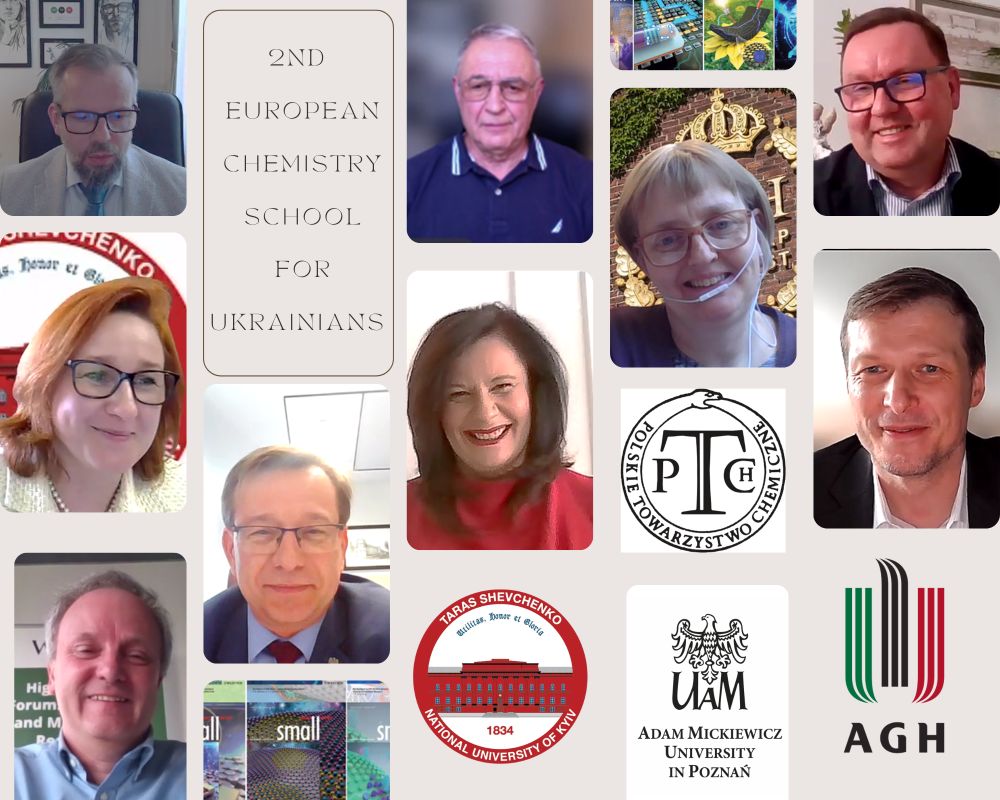2nd European Chemistry School for Ukrainians
The 2nd European Chemistry School for Ukrainians is officially underway! Hosted under the patronage of the Rector of AGH University of Science and Technology and the President of the Polish Chemical Society, this exciting event brings together students, researchers, and chemistry experts from across Europe for three months of intensive scientific learning and knowledge exchange, and networking.
https://acmin.agh.edu.pl/en/detail/s/ii-european-chemistry-school-for-ukrainians
The 2nd European Chemistry School for Ukrainians opened with talks from distinguished speakers from Poland and Ukraine, who warmly welcomed the participants. Our sincere thanks go to Prof. Krzysztof Mendrok, Vice-Rector for Education at AGH University; Prof. Dr. Hab. Piotr Pawluć, Vice-Rector for Human Resources and Doctoral Schools at Adam Mickiewicz University in Poznań; Prof. Dr. Hab. Robert Pietrzak, President of the Polish Chemical Society; and Prof. Dr. Ganna Tolstanova, Vice-Rector for Research at Taras Shevchenko National University of Kyiv, for their time and effort to support this initiative.
The first lecture at the European Chemistry School for Ukrainians was a fascinating talk entitled “Artificial Intelligence: The Future of Synthetic Chemistry?‘ by Prof. Alexandre Varnek from the University of Strasbourg in France. Renowned for his significant contributions to cheminformatics, Prof. Varnek took participants on a dive into how artificial intelligence is transforming the field of chemistry.
The second lecture was delivered by Prof. Eva Malmström Jonsson, Director of the Wallenberg Wood Science Centre and Programme Manager of WWSC Programme 2: Biobased Polymers and Modelling at the KTH Royal Institute of Technology, Sweden. Professor Malmström began by introducing various departments at KTH, followed by an overview of the Division of Coating Technology’s key research areas. Prof. Malmström placed particular emphasis on wood-based and sustainable materials, highlighting the importance of developing materials for large-scale industrial use that could have a societal impact.
Finally, Dr. Neville Compton, the editor-in-chief at Small (Wiley), delivered an insightful talk entitled “Acceptance versus Rejection: Insider Tips for Increasing Your Chances of Successful Rapid Publication at Top Journals,” in which he explained essential details about preparing manuscripts and cover letters, offered tips on selecting the right journal for publication, and emphasized the significance of delivering novel, well-written works while highlighting the importance of ethical publishing.
We are looking forward to the next lectures and scientific discussions, and we hope that there will be plenty of opportunities to connect with fellow chemists. Thank you to everyone who attended the school today, and we look forward to seeing you at the next sessions!



